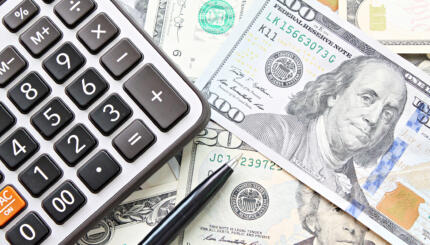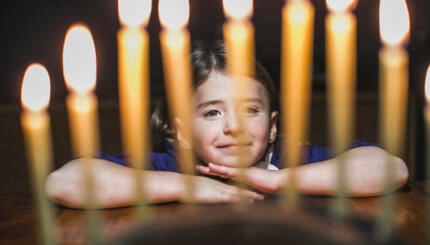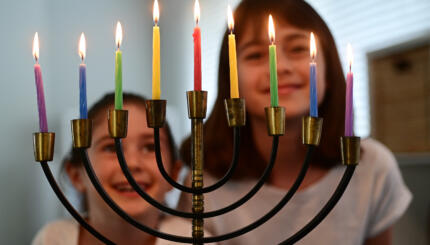As the calendar flips to December, nightfall comes ever earlier, and many of us don our winter coats for the first time, Jews throughout America once again will encounter a challenging cultural/religious question: how should we celebrate Hanukkah? Sure, there will be candle-lighting and latkes, but what else? Lavish presents? Contemporary, catchy songs? Vodka and latke parties? Or, to put it more succinctly, how much like Christmas should our celebration be?
The traditionalists among us might recoil at such a thought. After all, according to the (second) blessing we recite when lighting our candles, Hanukkah celebrates a great miracle that our ancestors experienced in 165 BCE. It is a holiday that enables us to champion particularism over assimilation, valorize ritual observance (both in Temple times and our own), and praise God for the miracle of a single cruse of oil lasting a full eight days. Why tarnish these virtues by dipping into a Christian(ish) context? Aren’t dreidels, latkes, candles, and gelt enough?
On the other hand, Christmas asserts a powerful gravitational pull on American culture from late October through New Year’s. Whether or not one is Christian, one is bombarded — in malls, on the radio, in office elevators, and on and on — with Christmas music, decorations, and other symbols. It is incredibly hard to shelter Jewish Americans from this influence; merely suggesting that all Jews just turn a blind eye to this cultural monolith is perhaps a tad naive. Plus, it is far from clear how Christian Christmas actually is. As far back as 1984, the Supreme Court ruled (in Lynch v. Donnelly) that a town’s display of a Santa Claus house, a Christmas tree, a banner reading “Season’s Greetings,” and a crèche were not Christian symbols violating the First Amendment. How much less so are offering gifts or having alcohol-fueled evening parties?
I used to align myself with the former camp, thinking that asserting an affirmative Jewish identity in our secular/Christian America was such an important value that we should do whatever we can to distinguish Jewish practices from non-Jewish ones. Recently, though, I attended a lecture by the renowned scholar Professor Judith Hauptman in which she looked closely at the literary sources of Hanukkah and asked the provocative question: Why is there no mention of the oil miracle in any Jewish sources until the Babylonian Talmud?
READ: When the Rabbis Made Hanukkah About Miracles, Not Military
Hanukkah is referenced several times in the Mishna (Moed Qatan 3:9, Baba Qama 6:6) and other early Jewish literature (e.g. Tosefta Ta’anit 2:5) without any reference to the miracle of oil lasting eight days. Nor is the oil miracle described in either of the two Books of Maccabees. It is only several hundred years later, in the Babylonian Talmud Tractate 21b, that the account of the oil miracle first occurs. Based on this novelty, along with 1) another lighting miracle unrelated to the Hanukkah story referenced in Shabbat 22b and 2) the prevalence of Zoroastrian lighting ceremonies in Babylonia at the time the Talmud was redacted, Hauptman suggests that the oil miracle story might have been incorporated by the rabbis to provide a mythology to underlie the pre-existing Hanukkah celebration dating back to Hasmonean times.
While this might seem radical to the naked eye, the truth is that Judaism, since its inception, has incorporated, expanded, and Judaized contemporary religious and cultural practices of other groups. Any scholarly analysis of Genesis 1 shows how (Genesis) takes ancient Near Eastern creation myths and makes them monotheistic. Or how many of the mourning practices such as covering mirrors we still employ as Jewish rituals actually come from pagan/Christian medieval practices. In short, it is Jewish to borrow from broader cultural memes and symbols and to redirect them through a Jewish prism. Perhaps Hanukkah, in its relationship to Christmas, is no different. Perhaps we can derive Jewish nachas (Yiddish for pride) and meaning from a little more Christmas-style revelry in our Hanukkah celebrations.



